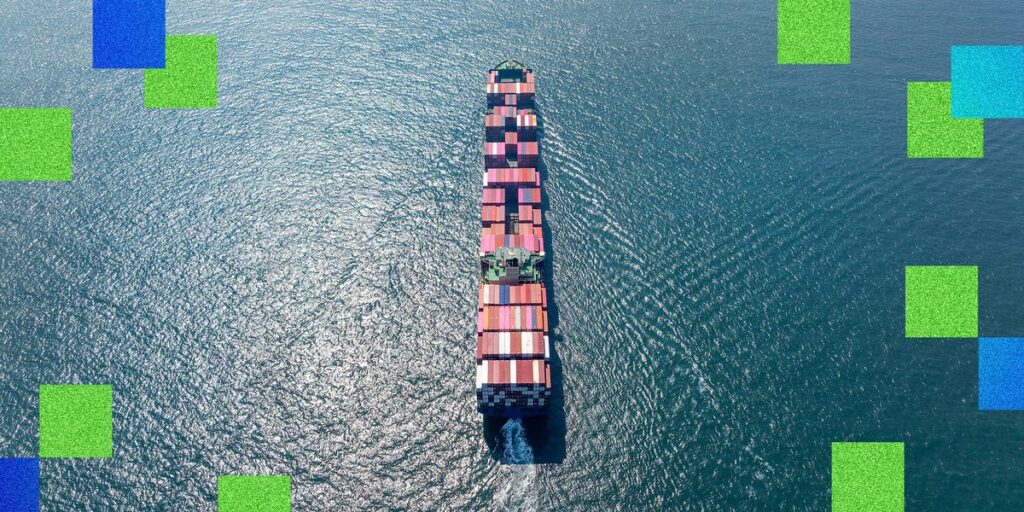A central policy of President Donald Trump’s second administration has been sweeping tariffs on imports from more than 90 countries, leading to uncertainty that has hung over global supply chains throughout 2025.
The disruption has only recently subsided as the US has secured deals with major trading partners like the European Union, South Korea, and Japan, all striking deals that settled on a 15% tariff rate. Tariffs are still far higher in places like India and Brazil, both of which the Trump administration stamped with a 50% tariff rate this summer.
As companies of various sizes reckon with these rising tariff costs, they’re taking charge where they can: with AI-assisted technologies that can help them lower their manufacturing and logistics costs.
AI can help companies get lower vendor prices
For Solventum, a company that produces surgical and dental supplies, tariff increases emerged as the healthcare company was celebrating its first year as a stand-alone business, following a spinoff from the industrial conglomerate 3M.
Magnus Lundgren, Solventum’s senior vice president and chief procurement officer, said the company sought a digital tool that could streamline its competitive-bidding process. The company also wanted a tool that could lock in lower costs from the vendors it works with to buy chemicals, packaging materials, and electromechanical components, said Lundgren.
Solventum struck a deal with Arkestro, which uses AI to help businesses secure better pricing terms faster with suppliers, and onboarded them just as the tariffs began to come into effect in April, said Lundgren.
The company uses Arkestro’s procurement platform, which blends AI, machine learning, game theory, and human behavior to evaluate suppliers, including their ability to deliver goods on time and their pricing patterns. Then, it recommends the optimal contractors for Solventum.
Lundgren said the tool has helped speed up the process of vetting competitive bids from suppliers and can identify when a vendor has switched from making goods abroad to domestic production.
In some cases, Lundgren said Solventum has seen double-digit savings on the cost of goods.
“It’s not a guarantee every time, but the tool really drives to a new, reduced price point,” Lundgren told Business Insider.
Similarly, JR Metal Works, a small Wisconsin-based manufacturer of pipes, metal, and plates for the defense, aerospace, and utilities industries, works with Xometry, an AI-based marketplace that connects manufacturers with suppliers. Xometry utilizes AI algorithms to analyze a part’s materials and manufacturing requirements to generate a pricing quote for manufacturers.
Jesse Kleiman, the founder and owner of JR Metal Works, said the company relies on Xometry’s AI-assisted pricing model, which updates automatically when tariff rates and subsequently material costs change.
AI is making it easier for The Light Phone to ship internationally
Joe Hollier, the cofounder of The Light Phone, said that AI was a key tool in deciding how the company should respond to tariff hikes.
At the time, The Light Phone, which sells pared-down cellphones to consumers, was shipping all of its devices from China to the US and then exporting them to foreign markets like Canada, Australia, and the European Union.
In March, the company was gearing up to launch a third iteration of its minimalist phone, but Hollier said The Light Phone halted production due to tariff-related uncertainty. With tariffs affecting multiple markets, the startup would be hit with a tax twice, both when importing into the US and then exporting internationally.
“We got hit basically as hard as we could,” said Hollier. “It really made it hard and financially straining, and at times impossible, to ship internationally.”
The Light Phone pivoted in two ways. First, the company said it added an international fulfillment center, so it can avoid US tariffs for any international orders between China and other international markets.
Hollier said that in response to the tariffs, the company began to rely on Mayple Global, an AI-supported e-commerce platform. Mayple uses AI to generate standardized system codes, which in turn create the unique product classification needed for every device that The Light Phone sells. Mayple’s AI tools can also automatically generate product descriptions, invoices, and clearance documents necessary for all of The Light Phone’s international shipments.
“Our prices have gone down significantly,” said Hollier. He added that by bypassing US tariffs for international customers, the company has seen savings of at least 20% on the cost of its goods.
“We’re looking forward to passing that on to the user,” Hollier said.


